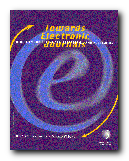Selected Essays on Technology, Creativity, Copyright, and the Future of the Future
Cory Doctorow is a young Canadian freelance writer and web entrepreneur who lives in London. He’s an editor of Boing-Boing and former director of the Electronic Frontier Foundation; he writes science fiction novels, and he gives his work away free of charge – yet makes a living from his writing. How can it be done? That’s one of the things he explains here. Content: Copyright and DRM is a collection of speeches, essays, and articles he has produced in the last few years, proselytising in favour of open source software, against digital rights management (DRM) systems, against censorship, on copyright, and in favour of the free exchange of information, unhindered by state controls or commercial prohibitions.
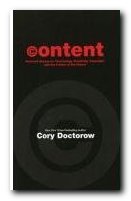 At their most fervent, his arguments come across like those of a students’ union activist – but he’s brave. He speaks against Digital Rights Management (DRM) to an audience at Microsoft. The reason he’s a successful journalist is that he understands new media technology, and he has a gift for wrapping up his arguments in a vivid and succinct manner:
At their most fervent, his arguments come across like those of a students’ union activist – but he’s brave. He speaks against Digital Rights Management (DRM) to an audience at Microsoft. The reason he’s a successful journalist is that he understands new media technology, and he has a gift for wrapping up his arguments in a vivid and succinct manner:
Books are good at being paperwhite, high-resolution, low-infrastructure, cheap and disposable. Ebooks are good at being everywhere in the world at the same time for free in a form that is so malleable that you can just pastebomb it into your IM session or turn it into a page-a-day mailing list.
He has a racy and amusing journalistic style. He writes in short, almost epigrammatic statements with a no-holds-barred attitude to any potential opposition.
As Paris Hilton, the Church of Scientology, and the King of Thailand have discovered, taking a piece of [embarrassing] information off the Internet is like getting food colouring out of a swimming pool. Good luck with that.
Some of the items are quite short – quick reprints of web pages from the Guardian technology section – but they are all pertinent to the issues of creativity and new media. Why for example does the best eCommerce site in the world (Amazon) want to control what you do with your Kindle downloads? Doctorow argues that these are short-sighted policies which prevent the spread of information and the creation of new developments.
He’s gung-ho about the business of eBooks and eCommerce. He makes his books available free as downloads on the Internet, confident that this will result in more sales of the printed book. There’s no actual proof that it results in more sales – but he’s happy with the results, and so is his publisher, and the publicity gives him income from other sources, such as journalism and speaking engagements.
Having said that, more than 300,000 copies of his first novel were downloaded for free, resulting in 10,000 printed books sold. As he argues, that’s like thirty people picking up the book and looking at it in a bookstore for every one who made a purchase. But the thirty pickups cost almost nothing, and I think many authors would be very happy with sales of ten thousand.
[It should be remembered that the average full time writer makes approximately £3,000-5,000 a year – and if you look at that in terms of a forty hour week, it’s less than £2.50 per hour.]
The sheer range of his subjects is truly impressive. There’s a chilling insider report from a committee discussing DRM, an essay on a sub-genre of science fiction writing called fanfic, and even a satirical piece calling into question the limitations of meta-data.
He’s at his strongest on the subject of copyright – and that includes the rights of the person who buys the book, the film, or the MP3 music file. The author has the right to be paid for selling it to you, but you have the right to do with it (almost) whatever you wish.
He has any number of interesting things to say about the nature of eBooks – from their apparent problems, their multiple formats, and their malleability, to the issues surrounding copyright. And the encouraging thing is that he writes not just in theory but as a working writer who is exploring the eBook business and what it can do – for both authors and readers.
If you want to know what’s happening at the sharp end of digital publication and new ideas about the relationships between authors and their readers – do yourself a favour and listen to what he has to say. You might not agree with it all, but it will give you plenty to be thinking about.
© Roy Johnson 2009
Cory Doctorow, Content: Selected Essays on Technology, Creativity, Copyright, and the Future of the Future, San Francisco: Tachyon Publications, 2008, pp.213, ISBN: 1892391813
More on eCommerce
More on media
More on publishing
More on technology
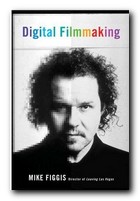

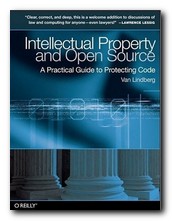

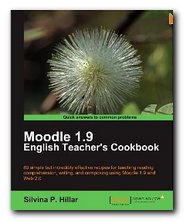

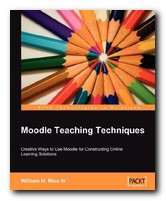
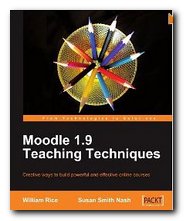
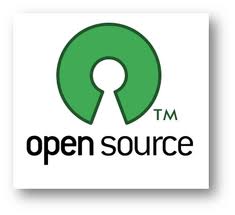 It is now not uncommon to hear of staff packing any remaining teaching commitments into one term (or semester) – giving them two-thirds of a year free to do as they wish. At professorial level it’s even worse. At my former university a well-known academic with an international reputation on a six-figure salary taught for two hours once a fortnight, refused to make his email address or his telephone number available to anyone, and lived outside the UK, jetting in for his celebrity seminars every two weeks and returning home the same day.
It is now not uncommon to hear of staff packing any remaining teaching commitments into one term (or semester) – giving them two-thirds of a year free to do as they wish. At professorial level it’s even worse. At my former university a well-known academic with an international reputation on a six-figure salary taught for two hours once a fortnight, refused to make his email address or his telephone number available to anyone, and lived outside the UK, jetting in for his celebrity seminars every two weeks and returning home the same day.